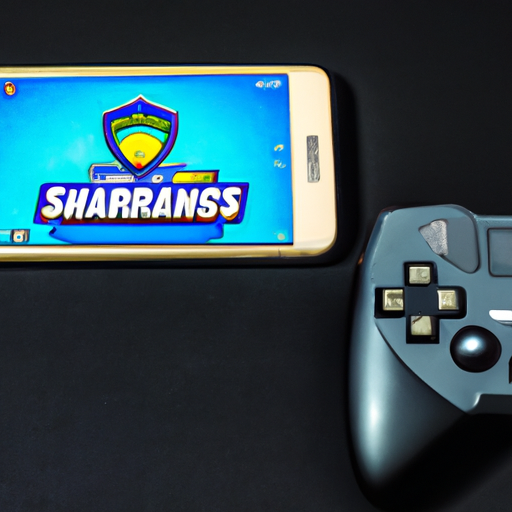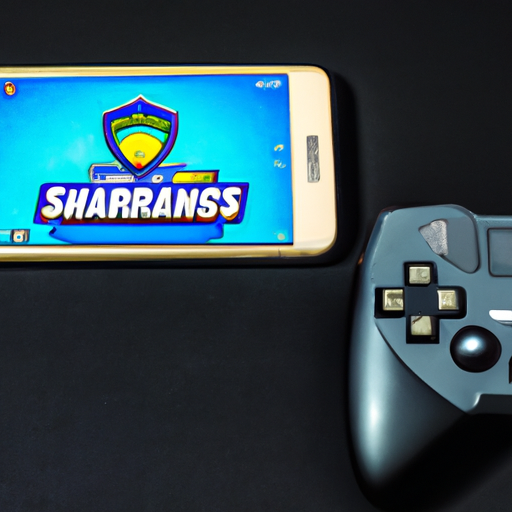Is Mobile Gaming Considered Real Gaming? 10 Interesting Points to Debate
Mobile gaming has exploded in popularity in recent years, with millions of people around the world now regularly playing games on their smartphones and tablets. But as this form of gaming continues to grow, a debate has emerged among gamers and industry experts: is mobile gaming considered real gaming?
While some argue that the limitations of mobile devices and the types of games available make it a lesser form of gaming, others believe that the accessibility and convenience of mobile gaming make it just as valid and legitimate as traditional console or PC gaming. In this article, we will explore the various perspectives on this issue and delve into what defines real gaming in the ever-evolving landscape of the gaming industry.
Is Mobile Gaming Considered Real Gaming: Definition of Real Gaming
What constitutes real gaming?
Real gaming refers to the act of engaging in video games as a form of entertainment, where players immerse themselves in virtual worlds, complete objectives, and interact with digital environments. The term “real gaming” is often subjective, as it can differ from person to person based on their preferences and beliefs. However, the common consensus is that real gaming involves playing video games on dedicated gaming consoles, computers, or mobile devices.
Criteria for real gaming
While the definition of real gaming may vary, certain criteria can be used to determine whether an activity falls under this category. One criterion is the level of engagement and interaction with the game. Real gaming typically requires active participation, decision-making, and problem-solving, distinguishing it from passive forms of entertainment.
Another criterion is the use of specialized gaming hardware or software. This includes consoles like PlayStation, Xbox, or gaming PCs, which often provide a more immersive gaming experience in terms of graphics, performance, and controls. Additionally, games developed specifically for gaming platforms tend to have more complex gameplay mechanics, further distinguishing them as real gaming experiences.
Is Mobile Gaming Considered Real Gaming: Mobile Gaming Overview
Growth and popularity of mobile gaming
Mobile gaming has experienced exponential growth in recent years, becoming one of the most popular forms of gaming worldwide. The convenience, affordability, and widespread availability of smartphones have contributed to the rise of mobile gaming. With millions of games available on app stores, users can access a vast array of titles at their fingertips, catering to a wide range of interests and demographics.
Different types of mobile games
Mobile games can be broadly categorized into various genres, including casual, strategy, role-playing, puzzle, and multiplayer games. Casual games, such as Candy Crush Saga or Angry Birds, are often simple, easy to pick up, and designed for short play sessions. Strategy games like Clash of Clans or Civilization Revolution require more thoughtful decision-making and long-term planning. Role-playing games (RPGs) like Pokémon Go or The Elder Scrolls: Blades offer immersive storylines and character progression. Puzzle games challenge players’ problem-solving skills, while multiplayer games encourage social interaction and cooperation.
Challenges Faced by Mobile Gamers
Limited screen size and controls
One of the challenges faced by mobile gamers is the limited screen size of smartphones or tablets. Compared to larger screens found on gaming consoles or PCs, the small display can impact the overall gaming experience, particularly for games that require precise aiming or detailed visuals.
Furthermore, mobile gaming often relies on touchscreen controls, which can be less intuitive and less accurate than physical controllers. The lack of tactile feedback can also affect gameplay, especially in fast-paced action games. However, developers have been innovative in finding ways to optimize touchscreen controls, implementing gesture-based controls or utilizing the device’s accelerometer for motion controls.
Technical limitations of mobile devices
Mobile devices come with inherent technical limitations that can impact gaming performance. Limited processing power, memory, and graphical capabilities can result in lower visual quality and reduced frame rates compared to dedicated gaming platforms. This limitation can be more noticeable in graphically demanding games or when playing on older or lower-end devices.
Additionally, the storage capacity of mobile devices can pose a challenge as high-quality games often require substantial storage space. Some players may face limitations in installing multiple games or encounter difficulties in managing available storage for updates and additional content.
Is Mobile Gaming Considered Real Gaming: Comparison with Traditional Gaming
Graphics and performance
In terms of graphics and performance, mobile gaming often lags behind traditional gaming platforms. Dedicated gaming consoles and computers have more powerful hardware, allowing for visually stunning and immersive experiences. High-end gaming PCs can offer vastly superior graphics, larger and more detailed environments, and more advanced animations.
While modern smartphones have made significant strides in graphics and processing power, they are still limited by their form factor and power constraints. The smaller size, limited cooling capabilities, and battery life considerations can restrict the visual fidelity and overall performance of mobile games.
Gameplay and immersion
The gameplay and immersion in mobile gaming can differ from traditional gaming, primarily due to the limitations of touch-based controls and the smaller screen size. Complex controls found in console or PC games, such as using multiple buttons, triggers, or joysticks, may be simplified or altered for mobile gaming. This can sometimes result in a shallower or less nuanced gameplay experience.
Additionally, the smaller screen size of mobile devices can hinder immersion and limit the overall visual experience. However, improvements in screen technology and game optimization have resulted in mobile games offering more immersive experiences. Games like Fortnite and PUBG Mobile have successfully translated the core gameplay mechanics of their PC counterparts onto mobile devices, providing a compelling experience for players.
Social aspects
Traditional gaming platforms often offer more robust social features compared to mobile gaming. Online multiplayer experiences, voice chat, and community integration are often more prevalent in console and PC gaming. Mobile games, while increasingly incorporating multiplayer features, may not offer the same level of social interaction due to technical limitations or design constraints.
That said, mobile gaming has its own social aspects, with many games including social features like leaderboards, achievements, and in-game chat. Games like Among Us have found tremendous success in enabling players to connect and interact, highlighting the potential for social engagement in mobile gaming.

Impact of Mobile Gaming on the Gaming Industry
Accessibility and audience reach
One of the most significant impacts of mobile gaming is its accessibility and the unprecedented reach it has brought to the gaming industry. With smartphones being widely available, mobile gaming has introduced gaming to a broader audience, including demographics that may not traditionally engage with gaming. The ease of downloading games from app stores and low barriers to entry have opened the world of gaming to millions of new players.
Revenue generation
Mobile gaming has also revolutionized the way games are monetized. While traditional gaming platforms often rely on upfront purchases or subscriptions, mobile games have popularized the free-to-play model, where games are accessible for free but generate revenue through in-app purchases or advertisements. This model has proven successful, with mobile gaming generating significant revenue globally.
Mobile games have also led to the growth of microtransactions, where players can purchase in-game items or currency to enhance their gaming experience. These revenue streams contribute significantly to the sustainability and profitability of the mobile gaming industry.
Influence on game development
The success of mobile gaming has had a profound influence on the overall game development landscape. Developers have recognized the potential of the mobile platform and shifted focus towards producing games specifically designed for mobile devices. This has resulted in a wide variety of games catering to different play styles, interests, and time commitments.
Additionally, the mobile gaming market has become a source of inspiration for game developers in other sectors. Elements such as intuitive touch-based controls or bite-sized gaming experiences have been integrated into traditional gaming platforms, enhancing accessibility and appealing to a broader audience.
Mobile Gaming Communities and Competitions
Formation of mobile gaming communities
Mobile gaming has fostered the formation of vibrant online communities, bringing players together to share their experiences, strategies, and achievements. Social media platforms, dedicated forums, and gaming-specific chat applications provide avenues for mobile gamers to connect with like-minded individuals.
These communities often partake in discussions, offer advice, and build friendships around their shared passion for mobile gaming. Additionally, the convenience of mobile gaming enables players to stay connected with their communities on the go, further enhancing the social aspect of the gaming experience.
Mobile gaming tournaments and eSports
Mobile gaming has also emerged as a significant player in the realm of competitive gaming, with an increasing number of mobile gaming tournaments and eSports events. Games like Clash Royale, Arena of Valor, and Call of Duty: Mobile have created competitive scenes, attracting professional players and dedicated fan bases.
Mobile gaming tournaments offer opportunities for players to showcase their skills, compete for prizes, and gain recognition within the gaming community. The rise of eSports in mobile gaming has further solidified the status of mobile gaming as a legitimate and competitive form of gaming.

Mobile Gaming’s Role in Innovation
Advancements in touchscreen controls
Mobile gaming has played a crucial role in pushing the boundaries of touchscreen controls. Developers have continually innovated to provide intuitive, responsive, and accurate controls that enhance the gaming experience on mobile devices. From virtual buttons to gesture-based controls, touch interactions have evolved to enhance gameplay and cater to a broader range of gaming genres.
With the advent of pressure-sensitive displays and haptic feedback technology, mobile gaming has the potential to further improve the tactile experience and replicate the sensation of physical buttons or joysticks, blurring the lines between traditional and mobile gaming.
Integration of augmented reality (AR) and virtual reality (VR)
Mobile gaming has been at the forefront of integrating augmented reality (AR) and virtual reality (VR) technology. Games like Pokémon Go and Minecraft Earth have successfully merged the real world with virtual elements, creating immersive and interactive experiences.
Augmented reality gaming overlays digital content onto the real world, allowing players to explore and interact with their surroundings. Virtual reality, on the other hand, transports players to entirely virtual environments, providing a fully immersive experience. Mobile devices with built-in cameras, motion sensors, and high-resolution displays make AR and VR accessible to a wider audience.
Is Mobile Gaming Considered Real Gaming: Limitations of Mobile Gaming
Dependency on Internet connectivity
One of the limitations of mobile gaming is its reliance on a stable internet connection. While many games can be played offline, an increasing number of titles require a constant network connection to function fully. This can be a significant drawback, particularly in areas with limited connectivity or when playing on the go without access to Wi-Fi.
Furthermore, online multiplayer experiences can be affected by latency or connection issues, leading to disruptions in gameplay or lag. The dependence on internet connectivity can hinder the overall gaming experience and limit the accessibility of mobile games in certain scenarios.
Battery drain on mobile devices
Mobile gaming demands significant processing power from devices, leading to increased battery consumption. Graphically intensive games, in particular, can drain the battery quickly, resulting in limited playtime without access to a power source. The limited battery life of mobile devices can be a downside for gamers who enjoy extended gaming sessions or for those on the move without access to charging facilities.
While advancements have been made in optimizing power consumption, the trade-off between performance and battery life remains a challenge for mobile gaming.

Perception and Stigma
Negative perception of mobile gaming
Mobile gaming has historically faced a degree of stigma and negative perception from some sections of the gaming community. Critics argue that mobile games lack depth, offer simplified gameplay experiences, and prioritize microtransactions over the quality of gameplay. The belief that mobile gaming is primarily for casual gamers or lacks the complexity associated with traditional gaming platforms has perpetuated this negative perception.
Additionally, the dominance of free-to-play models and prevalence of pay-to-win mechanics in some mobile games have fueled concerns about exploitative practices and a focus on monetization rather than game quality.
Overcoming the stigma
Despite the initial stigma, mobile gaming has steadily gained recognition as a legitimate form of gaming. The release of high-quality mobile games, the growth of eSports in mobile gaming, and the increasing engagement from dedicated gamers have played a significant role in dispelling negative perceptions.
Furthermore, the increasingly sophisticated technology found in modern smartphones has narrowed the gap between mobile and traditional gaming experiences. Developers continue to create innovative and immersive games that challenge preconceived notions about mobile gaming, showcasing the potential quality and depth of the medium. As mobile gaming continues to evolve, it is likely to gain wider acceptance and appreciation within the gaming community.
Future of Mobile Gaming
Technological advancements
The future of mobile gaming looks promising, with ongoing technological advancements driving innovation in the industry. With each generation of smartphones, improvements in processing power, graphics capabilities, and battery life enhance the overall gaming experience on mobile devices.
Emerging technologies like 5G networks and cloud gaming could revolutionize the mobile gaming landscape. 5G’s faster and more reliable internet speeds will enable seamless online multiplayer experiences and reduce latency. Cloud gaming services will allow players to stream high-quality games directly to their mobile devices, providing access to console-quality gaming without the need for dedicated hardware.
Potential integration with other platforms
Mobile gaming also has the potential to integrate with other platforms, creating more seamless and interconnected gaming experiences. Cross-platform functionality allows players to continue their gaming sessions on different devices, such as transitioning from a mobile device to a gaming console or vice versa. This integration enhances accessibility and offers players the flexibility to enjoy their favorite games on their preferred platforms.
Furthermore, mobile gaming’s influence on game design and user experience is likely to spill over into other gaming platforms. The lessons learned from optimizing games for touch controls and creating engaging experiences on limited screen sizes may influence the design principles for future gaming consoles and PCs.
In Conclusion: The Ascendance of Mobile Gaming
In the grand tapestry of the gaming world, mobile gaming has evolved from being a mere thread to becoming a dominant and colorful pattern that captures the attention of both developers and players alike. It has not just established itself as a prominent and influential segment of the industry; it has also reshaped the very definition of gaming for the masses. With unparalleled accessibility that transcends geographical and demographic barriers, mobile gaming has democratized the world of digital entertainment like never before.
This surge in accessibility has fueled a significant increase in the user base, making mobile gaming a behemoth in its own right. Unlike other gaming platforms that may require expensive hardware and accessories, mobile games are just a tap away for anyone with a smartphone. This has broadened the audience to include groups that have historically been less involved in gaming, including older adults and busy professionals. Consequently, the genre has become a melting pot of diverse players, enriching the gaming culture and community in the process.
But it’s not just about the numbers. The real marvel lies in the continuous innovation that the platform encourages. Mobile gaming has become a hotbed for creative experimentation, with developers pushing the envelope in terms of technology, gameplay mechanics, and storytelling. Features like augmented reality, real-time multiplayer cooperation, and intricate narrative arcs are no longer the exclusive domain of console or PC gaming. Mobile games are increasingly showcasing complex and engaging experiences that rival, and sometimes even surpass, what’s being offered on more traditional platforms.
Moreover, mobile gaming has also proven to be an impetus for advancements in related technological realms. For example, the need for smoother, more responsive gameplay has driven improvements in mobile device hardware, from processors to battery life. The gaming demands have even influenced the development of accessories like specialized controllers and VR headsets compatible with mobile devices.
As we look toward the future, it’s clear that mobile gaming is poised to play an even more significant role in shaping the gaming landscape. It’s breaking down the barriers between casual and hardcore gamers, allowing for shared experiences and a more unified gaming community. With the increasing power of mobile devices and the limitless potential for innovative gameplay, mobile gaming isn’t just an alternative to traditional gaming platforms; it’s becoming a first choice for many.
So as the pixels settle and the high scores are tallied, one thing is certain: mobile gaming has expanded the boundaries of what is possible in the gaming world, and it shows no signs of stopping. It promises a future where gaming is more inclusive, innovative, and integrated into our daily lives, affirming its role as a key player in the ever-evolving narrative of digital entertainment.




